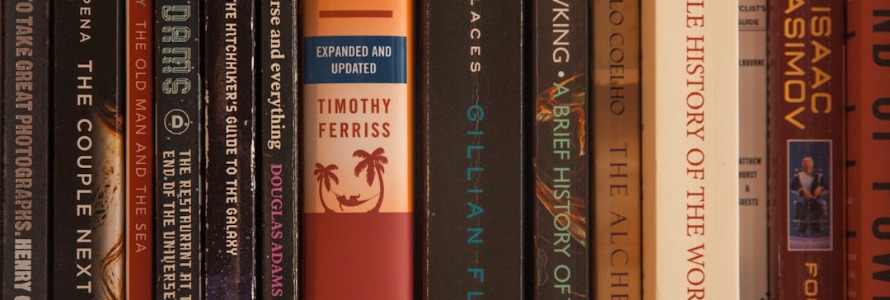
As a lifelong science enthusiast, I’ve always been drawn to books that bridge the gap between the complex world of scientific research and the compelling realm of storytelling. These books not only enlighten but also inspire, offering readers an accessible yet profound understanding of scientific concepts. Here, I’d love to share some of the most essential reads for science enthusiasts that have left a lasting impression on me.
1. “A Brief History of Time” by Stephen Hawking
The first time I picked up Stephen Hawking’s “A Brief History of Time,” I was a bit intimidated by the reputation of the book. However, as I delved into its pages, I found myself captivated by Hawking’s ability to explain complex scientific theories in a way that was both engaging and comprehensible. Hawking’s exploration of the universe, from the Big Bang to black holes, was not just informative but also deeply thought-provoking.
What struck me most about this book was Hawking’s sense of wonder and curiosity about the cosmos. His ability to blend rigorous scientific inquiry with a sense of awe inspired me to look at the universe with new eyes. “A Brief History of Time” is a must-read for anyone interested in understanding the fundamental principles that govern our world.
2. “The Immortal Life of Henrietta Lacks” by Rebecca Skloot
Rebecca Skloot’s “The Immortal Life of Henrietta Lacks” is a poignant and powerful narrative that tells the story of Henrietta Lacks, the woman whose cells were used to create the first immortal human cell line. I first read this book during a bioethics course, and it profoundly impacted my understanding of the ethical complexities in scientific research.
Skloot’s meticulous research and compassionate storytelling bring to light the human side of this scientific breakthrough. Henrietta’s story, and the impact of her cells on medical research, raised important questions about consent, ethics, and the intersection of science and society. “The Immortal Life of Henrietta Lacks” is a must-read for anyone interested in the ethical dimensions of scientific discovery and the enduring legacy of one woman’s contribution to science.

3. “The Gene: An Intimate History” by Siddhartha Mukherjee
Siddhartha Mukherjee’s “The Gene: An Intimate History” is a comprehensive and beautifully written exploration of the history of genetics. I picked up this book out of a deep curiosity about the building blocks of life, and it did not disappoint. Mukherjee masterfully weaves together the scientific, historical, and personal aspects of genetics, making complex concepts accessible to the reader.
One of the most memorable moments for me was Mukherjee’s discussion of the ethical implications of genetic research. His thoughtful reflections on the potential and the peril of genetic manipulation resonated deeply with me. “The Gene” is an essential read for anyone looking to understand the profound impact of genetics on our lives and the future of science.
4. “Sapiens: A Brief History of Humankind” by Yuval Noah Harari
Yuval Noah Harari’s “Sapiens” is a captivating journey through the history of our species. I was drawn to this book because of its ambitious scope and Harari’s reputation as a compelling storyteller. From the cognitive revolution to the rise of empires, Harari explores the key milestones that have shaped human history with clarity and insight.
Reading “Sapiens,” I was struck by Harari’s ability to connect seemingly disparate events and ideas, offering a cohesive narrative that spans thousands of years. His reflections on the future of humanity and the impact of technology on our evolution were particularly thought-provoking. “Sapiens” is a must-read for anyone interested in understanding the forces that have shaped our world and the challenges that lie ahead.
5. “Lab Girl” by Hope Jahren
Hope Jahren’s “Lab Girl” is a beautifully written memoir that blends science with personal narrative. I was drawn to this book because of Jahren’s unique perspective as a female scientist in a predominantly male field. Her lyrical prose and heartfelt storytelling made this memoir a captivating read.
Reading “Lab Girl,” I was moved by Jahren’s passion for plants and her dedication to her research. Her descriptions of the challenges she faced, both professionally and personally, resonated deeply with me. Jahren’s memoir is a celebration of resilience, perseverance, and the beauty of the natural world. It reminded me of the importance of staying true to one’s passion, even in the face of adversity.

6. “Cosmos” by Carl Sagan
Carl Sagan’s “Cosmos” is a classic that continues to inspire generations of science enthusiasts. I remember first reading this book in high school, and it opened my eyes to the wonders of the universe. Sagan’s ability to convey the grandeur of the cosmos and the excitement of scientific discovery is unparalleled.
What I loved most about “Cosmos” was Sagan’s ability to make science accessible and engaging. His poetic prose and infectious enthusiasm for knowledge sparked my own curiosity and passion for science. “Cosmos” is an essential read for anyone looking to explore the universe and our place within it.
7. “The Man Who Mistook His Wife for a Hat” by Oliver Sacks
Oliver Sacks’ “The Man Who Mistook His Wife for a Hat” is a collection of fascinating case studies that explore the complexities of the human brain. I was intrigued by this book because of Sacks’ reputation as a compassionate and insightful neurologist. Each case study offers a glimpse into the lives of patients with unique neurological conditions, revealing the intricacies of the human mind.
Reading Sacks’ book, I was struck by his empathy and his ability to see his patients as individuals, not just subjects of study. His reflections on the mysteries of the brain and the human experience resonated deeply with me. “The Man Who Mistook His Wife for a Hat” is a must-read for anyone interested in the wonders of the human mind and the stories that lie within.
Conclusion
Books that bridge the gap between science and literature offer a unique and enriching experience for readers. They provide not only knowledge but also inspiration, making complex scientific concepts accessible and engaging. Each of these books has left a lasting impact on me, shaping my own understanding of the world and reminding me of the power of storytelling in science.
Through their words, we gain insight into the minds of scientists, the history of scientific discoveries, and the ethical dimensions of research. These books are not just stories; they are lessons in curiosity, resilience, and the enduring quest for knowledge. For anyone looking to explore the fascinating world of science, these books are essential reads.
As I continue to explore the vast landscape of science literature, I am constantly reminded of the beauty and complexity of the universe. It is through these personal narratives that we can find inspiration, comfort, and a deeper appreciation for the discoveries that have shaped our world.


